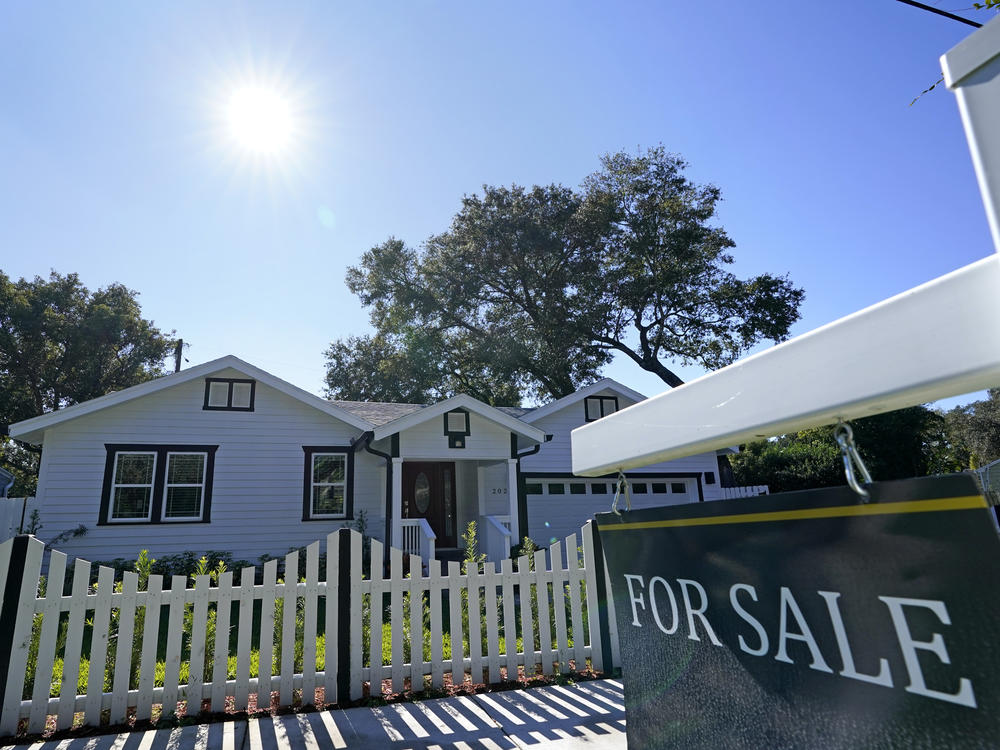Section Branding
Header Content
Buying a home gets even harder as mortgage rates top 7%
Primary Content
The average rate for a 30-year fixed rate mortgage has topped 7% for the first time in 20 years.
Rates have more than doubled since the start of the year, making it much harder for would be homebuyers. The pace of home sales has declined for 8 consecutive months as frustrated buyers give up, unable to afford higher payments.
The weekly average for a 30-year fixed rate loan is now 7.08%. That's the highest level since April 2002 and it is "leading to greater stagnation in the housing market," according to the mortgage giant Freddie Mac.
Rising rates have also slammed the lid on home prices, which have declined 1%, according to the latest reading of a closely watched home price index. Prices though were still up 13% compared to a year ago.
Where prices go next is matter of debate among economists.
"Our forecast is for about flat home price growth in '23 and '24," said Joel Kan with the Mortgage Bankers Association. "But if you have flat home price growth for the country you're going to have lots of geographies that see outright declines."
Moody's Analytics is predicting an overall year-over year price decline of 6% nationally, and about a 10% fall from the price peak this past June.
Most analysts agree that a nationwide housing shortage, combined with the fact that most homeowners are in fixed rate loans they can afford, will prevent a real crash in home prices.
The higher mortgage rates are causing extra pain for would-be homebuyers because prices rose so much during the pandemic - up as much as 40% in just two years. Kan says the number of people applying to get a mortgage is at its lowest level since 1997.
Copyright 2022 NPR. To see more, visit https://www.npr.org.

